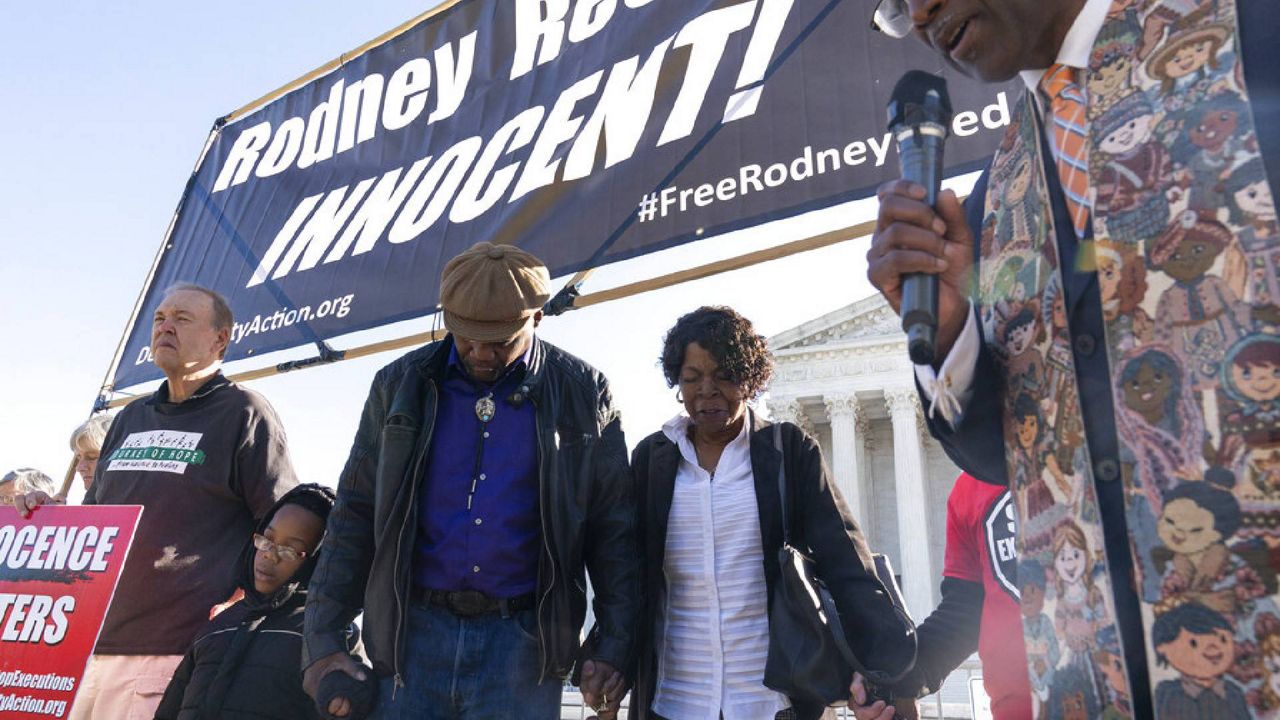Death row inmate Rodney Reed’s case before the U.S. Supreme Court Tuesday — when does the clock start ticking on a request to test DNA evidence? — has implications in both Reed’s case and many other cases in the Texas court system.
Stacy Stites was murdered in Bastrop County in 1996. Reed was tried and sent to death row in 1998. But Reed’s legal team didn’t file a federal lawsuit to force DNA testing of crime scene evidence — claiming it was a violation of Reed’s civil rights — until 2019.
A three-judge panel at the 5th U.S. Circuit Court of Appeals tossed out Reed’s case, saying any appeal should have been filed within two years of when Reed’s legal team lost a bid to force prosecutors to turn over crime scene evidence for DNA testing. That was in 2014.
Reed’s brother Rodrick was on hand for Tuesday morning’s oral arguments in Washington, D.C. In an interview with Spectrum News anchor Dr. Nicole Cross, Reed said no time limit should be placed on the testing of crime scene evidence if it has the ability to exonerate someone.
“Anytime that there’s evidence out there that can prove one’s innocence or guilt, it should be admitted,” Rodrick Reed told Dr. Cross. “We know that if a life is on the line, that’s something that you can’t undo. You can’t take it back. All avenues must be tested. (The evidence) should be tested. It should have been tested.”
Attorney Parker Rider-Longmaid, arguing on Reed’s behalf, said the ability to petition for DNA testing should be open to the end of the state court litigation. Too often, a case remanded to the lower court can lead to new reasoning and results.
“As a practical matter, tying accrual to the end of state court litigation is simple, predictable and sensible. Tying accrual to some earlier stage is not,” Rider-Longmaid told the court. “Linking accrual to the trial court’s judgment would disrespect the state court’s appellate process and require a stay in almost every case. It would clutter dockets with protective complaints, motions and amended complaints. And it raises more questions than answers.”
Reed’s legal team also has raised objections about additional requirements for DNA testing placed on Reed’s case by the Court of Criminal Appeals. The Court of Criminal Appeals added a non-contamination clause for evidence testing, which would be impossible to meet given the state’s own evidence handling and storage protocols.
Solicitor General Judd Stone argued on behalf of Texas and the local district attorney who denied Reed’s request to test crime scene materials. Stone said the particular challenge Reed’s legal team brought — to challenge the state law on DNA test — was the wrong approach.
“Reed’s claim is both jurisdictionally barred and untimely,” Stone said. “On jurisdiction, the defendant Reed named, the claim he brought and the relief he seeks don’t line up.”
Reed’s legal counsel sued Bastrop County District Attorney Bryan Goertz under the chapter of law that applies to DNA testing. That had nothing to do with the latitude Goertz is granted to approve or deny DNA requests under his common law authority as a local prosecutor, Stone said.
The U.S. Supreme Court is expected to rule on Reed’s request as early as February. If Reed won, it would set a process in motion for DNA testing of crime scene evidence. Reed also has a separate appeal, challenging the state for failing to produce all evidence for the defense, often referred to as a Brady violation.
“We also believe it is important to recognize that for 23 years, prosecutors illegally hid evidence that could have exonerated Mr. Reed,” said attorney Jane Pucher of The Innocence Project. “Withholding evidence is a constitutional violation which requires Mr. Reed’s conviction and death sentence to be overturned. As we look to the state courts, we hope the Texas Court of Criminal Appeals agrees that Mr. Reed should be given a new, fair trial where all of the evidence of his innocence can be presented.”



